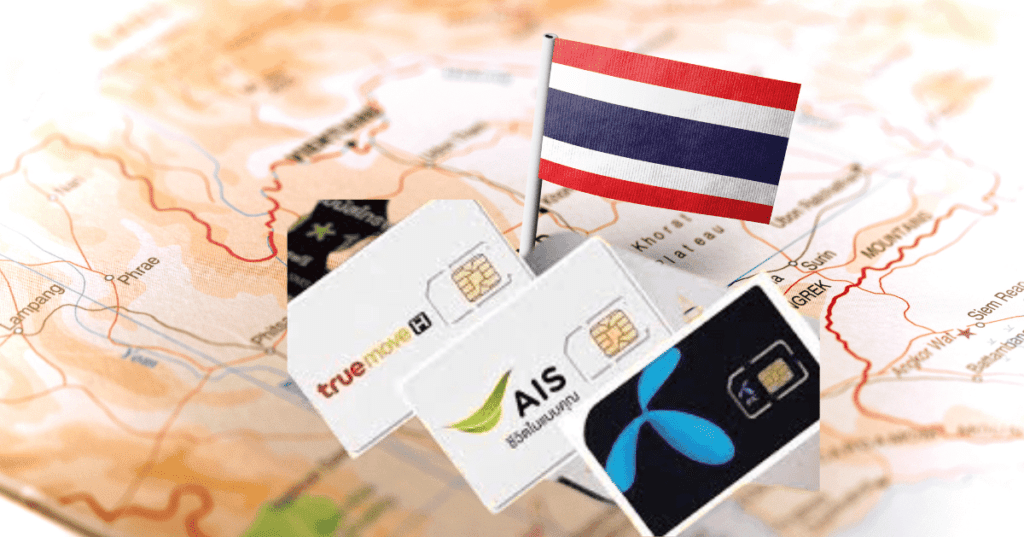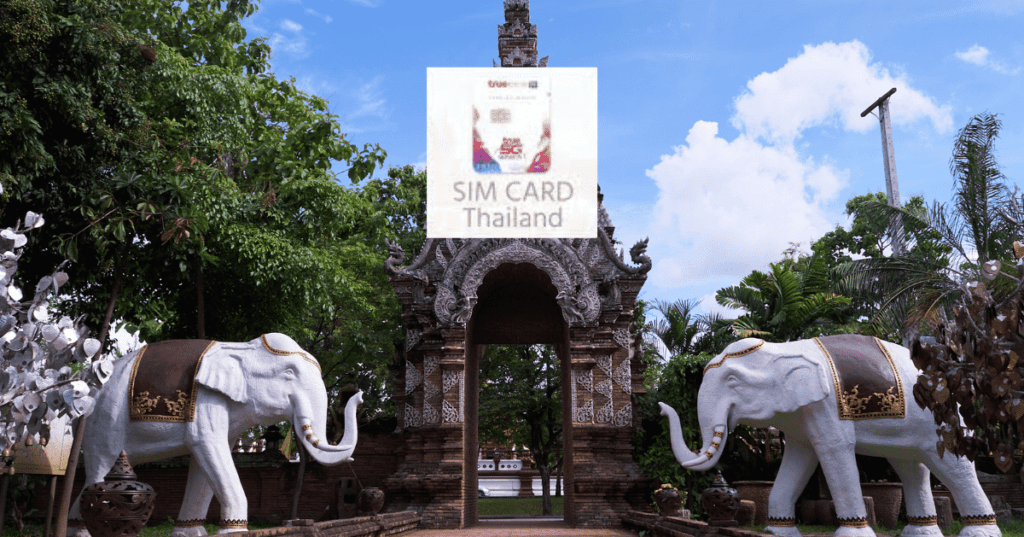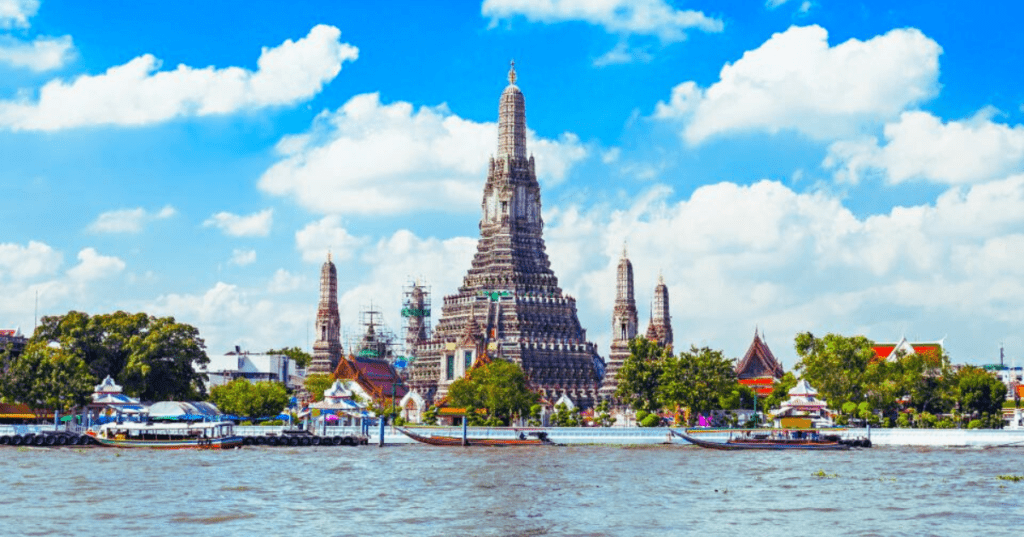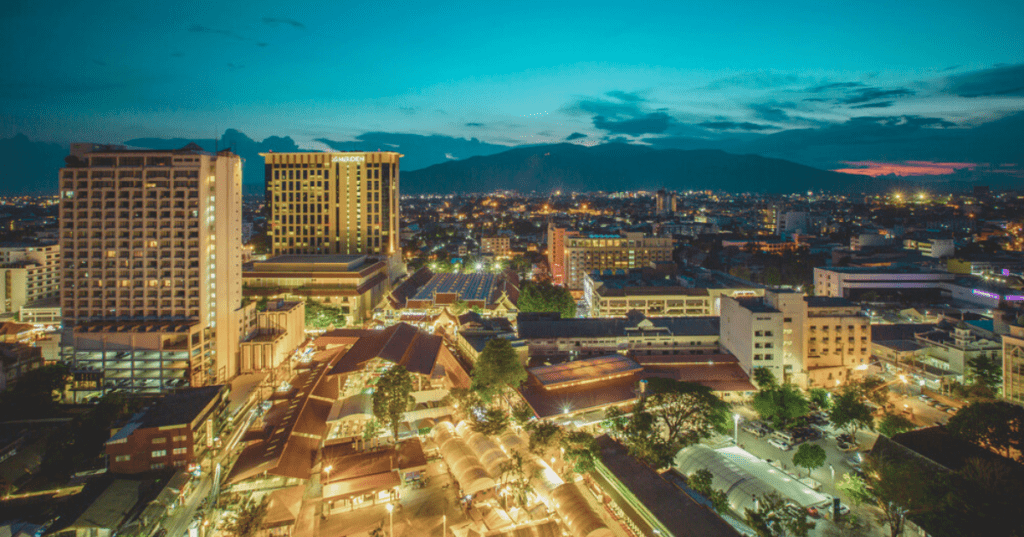When traveling to a new place, staying connected is a top priority. It’s for using Google Maps, booking a Grab ride, or sharing gorgeous temple photos. So, here in Chiang Mai, getting a local SIM card is the easiest and most affordable way to stay online.
It is quite simple to purchase a SIM card in Chiang Mai, as I have discovered during my numerous visits. There are many places to purchase SIM cards, from 7-Elevens to airport kiosks, but not all of them are made equal. Some offer great data packages perfect for short stays, while others are better suited for digital nomads staying long-term.
I will help you stay connected during your time in Thailand, no matter if it’s your first visit or you’re a frequent traveler.
Types of SIM Cards in Chiang Mai

You have several choices when it comes to purchasing a SIM card in Chiang Mai. The kind you select will depend on how long you plan to stay and how much data you require. I will explain it to you in detail:
1. Tourist SIM Cards
Tourist SIM cards are the best option if you are here in Chiang Mai for a short stay. These are designed specifically for travelers, so they come with everything you need—plenty of data, some talk time, and even a bit of credit for international calls. The best part? They’re super easy to find at the airport or any convenience store.
Depending on the package you select, the typical duration of a tourist SIM card is seven to thirty days. Most carriers, like AIS and TrueMove H, offer affordable data plans that cover you for the entire trip. You only need your passport to register, which makes setup simple.
2. Prepaid SIM Cards
Prepaid SIM cards could be the best option for those who plan to stay a little longer. These cards are ideal if you want to work remotely or spend a few months exploring Chiang Mai. With prepaid SIMs, you have the freedom to add more data or call time whenever you need it.
Selecting the data package that best suits your requirements, whether it be solely for social media or Netflix streaming during downtime, is another way to personalize your prepaid plan.
3. eSIMs
An excellent substitute for physical SIM card replacement is an eSIM, if you do not like physical SIM. You can easily get eSIM services in Chiang Mai. You can activate your plan digitally without needing to visit a store. Just make sure your phone supports eSIMs before you go this route.
SIM Card Costs and Data Packages in Chaing Mai, Thailand
| Type of SIM Card | Cost | Details |
| Tourist SIM Cards | 100 to 600 THB | Prices depend on data amount and duration. It includes data, local calls, and sometimes international minutes. Examples: AIS/TrueMove H: Packages from 7 to 30 days with 5GB to 20GB data.Some include unlimited social media apps like Facebook and LINE. |
| Prepaid SIM Cards | 50 to 100 THB | Cost for the SIM card itself. Top-up data as needed. Examples: 2GB of data: 150 THB ($4.50) 10GB of data: 500 THB ($14) |
Data Packages
The majority of Chiang Mai’s mobile service providers provide comparable packages, but below is a summary of what will be offered:
- Small Plans: 1-2 GB of data for light users (social media, email).
- Medium Plans: 5-10 GB for average use (maps, videos, some streaming).
- Large Plans: 20+ GB for heavy use (streaming, work, gaming).
Note: Prices may differ between mobile providers, and some companies offer special promotions with extra benefits like unlimited data or free calls for a limited time. Keep an eye out for these deals when you arrive!
Where to Buy a Travel SIM Card at Chiang Mai Airport After Arrival

It is very easy to purchase a travel SIM card at Chiang Mai International Airport after you land. Both the domestic and international terminals are conveniently equipped with booths where you can get a SIM card in minutes. You will be connected as soon as you get out of the airport. Here’s where you can find them:
1. Arrival Hall—International Terminal
As soon as you exit immigration and customs, you’ll spot SIM card kiosks from the top mobile providers in Thailand—AIS, TrueMove H, and DTAC. These kiosks are open to help travelers like you get set up with a SIM card quickly. The staff speaks English, so the process is smooth, and they’ll even set up your SIM card for you right on the spot.
2. Domestic Terminal
AIS, TrueMove H, and DTAC all have counters in the domestic arrival hall for those flying in from other parts of Thailand. In case you fly in from Bangkok or Phuket, it won’t be hard for you to obtain a SIM card once you get off the plane.
In most cases, SIM cards at the airport are designed to appeal to tourists, offering packages that include data, local calls, and international minutes for free. It usually costs between 299 and 599 THB (around $8 to $17), depending on how much data you use.
Some of the more popular packages include:
- 7 days with 5 GB of data
- 15 days with 8 GB of data
- 30 days with 15 GB of data
The staff will help you set up the SIM card and make sure it’s working perfectly before you leave. Just bring your passport for registration.
Why Buy a SIM Card at Chiang Mai Airport?
It’s super easy to grab a SIM card at Chiang Mai Airport. No need to worry about finding a store in the city and you might even score some sweet deals as a tourist. It’s a stress-free way to make sure you’re connected right from the start. So if you want to jump right into the action in Chiang Mai, getting a SIM card at the airport is the way to go.
How to Register Your SIM Card in Chaing Mai, Thailand?
When purchasing a tourist SIM card or a prepaid one in Thailand, remember that you need to register it to activate the SIM. The process is quick and easy. If you’re getting a SIM card in Chiang Mai, you only need to provide your passport for registration. The staff at the SIM card kiosk will scan your passport and handle the registration for you. This is required by Thai law to ensure proper identification of all mobile users.
If you purchase a SIM card at the airport or a mobile provider store, they will take care of the registration for you during the purchase process, so you don’t need to worry about it.
When buying a SIM card at a convenience store such as 7-Eleven, remember to take your passport to the counter so the staff can complete the registration process for you. It only takes a few minutes, and your SIM card will be ready to use.
eSIMs and Online Registration in Chaing Mai
If you decide to use an eSIM, the process is a bit different but still quite simple. Most providers allow you to register your eSIM online. You’ll need to upload a picture of your passport and follow the steps provided by your chosen mobile network. Once verified, your eSIM will be activated, and you’ll be connected right away.
Without registering your SIM card, you won’t be able to use it in Thailand. This process ensures that all mobile users in the country are registered under their legal ID, which helps regulate the use of mobile services and prevents misuse.
The good news is that the staff are experienced in handling the registration process, so it’s quick and painless. You’ll be registered and connected in no time!
Which SIM card is best for tourists in Thailand?
When it comes to choosing the best SIM card for your trip to Chiang Mai, there are three major mobile providers to consider: AIS, TrueMove H, and DTAC. Each one offers reliable service, but depending on your needs, one may suit you better than the others. Let’s break it down.
1. AIS SIM Card in Chiang Mai
Thailand has the best network coverage with AIS, especially in rural areas. If you want to explore more remote spots around Chiang Mai, AIS might be the best option. The company offers tourist SIM cards with generous data packages, including 8 gigabytes for 15 days or 15 gigabytes for 30 days. As a bonus, AIS often includes free access to popular social media apps like Facebook, LINE, and WhatsApp.
Why Choose AIS?
- Best overall coverage in Thailand
- Reliable network in both cities and rural areas
- Great data packages with social media perks
2. TrueMove H SIM Card in Chiang Mai
TrueMove H is a great choice for tourists, with fast data speeds and special promotions for tourists. For example, you can get 10GB of data for 15 days or 30GB for 30 days, and they also offer free access to True Wi-Fi hotspots across Thailand.
Why Choose TrueMove H?
- Great for city-based travelers
- High-speed internet with competitive prices
- Free Wi-Fi at thousands of hotspots
3. DTAC SIM Card in Chiang Mai
DTAC offers good coverage and competitive pricing, making it a popular choice for tourists. They’re known for having one of the easiest registration processes at the airport and in major stores. Their tourist SIM packages usually come with options like 6GB for 15 days or 20GB for 30 days. They also include free calling minutes to both local and international numbers.
Why Choose DTAC?
- Easy and fast registration
- Competitive data packages
- Free international calling minutes with some plans
Which is the Best SIM card?
If you’re sticking mostly to cities like Chiang Mai, TrueMove H or DTAC will likely meet your needs with fast data and solid service. However, if you’re planning to venture into more rural or off-the-beaten-path areas, AIS is your go-to for the best coverage.
All three providers offer affordable and tourist-friendly SIM cards, so it comes down to where you plan to travel and what perks matter most to you.
Top Tips for Using Your SIM Card in Chiang Mai
After setting up your SIM card, follow these helpful suggestions to get the most out of your mobile experience in Chiang Mai.
1. Monitor Your Data Usage
To prevent running out of data before your plan expires, keep an eye on how much you use. Most providers have apps that let you manage your plan and see how much data you still have left. This is especially useful if you’re streaming videos or using GPS a lot.
2. Use Wi-Fi When Available
You can get free wifi in many spots in Chiang Mai, especially in cafes, restaurants, and shopping malls. Using Wi-Fi when you can will help you save on your mobile data. Just make sure you’re connecting to secure networks to protect your personal information.
3. Top Up Easily
If you’re running low on data or need more talk time, topping up is easy. You can add credit at convenience stores like 7-Eleven or FamilyMart, or use the provider’s mobile app. Some providers also allow you to top up online. It’s a quick process, so you’ll never be left without service.
4. Check Coverage Maps
Check the coverage maps that your SIM card’s network has provided before venturing to more isolated locations. AIS has the best coverage for rural areas, while TrueMove H and DTAC are great for the city and popular tourist spots. Knowing your network’s coverage will help you plan better and avoid connectivity issues.
5. Keep Your SIM Card Safe
Make sure to keep your SIM card and your phone secure. If you’re traveling through busy areas or markets, consider using a phone case with a secure flap or a small pouch to protect your device and SIM card from theft.
6. Understand International Roaming
If you plan to travel outside Chiang Mai, check if your SIM card’s plan covers international roaming. Some tourist SIMs may include this, but it’s good to confirm to avoid unexpected charges. If roaming isn’t included, you might need to purchase an additional plan or SIM for other countries.
7. Contact Customer Service if Needed
If you run into any issues with your SIM card, don’t hesitate to contact customer service. Each provider has a customer service number and support options through their website or app. They can help troubleshoot problems or guide you through any issues.
FAQs About SIM Cards in Chiang Mai
1. What is the most popular SIM card for tourists in Chiang Mai?
The most popular SIM cards for tourists are from AIS, TrueMove H, and DTAC. Each of these providers offers tourist-friendly packages with good coverage and competitive pricing. AIS is often favored for its wide coverage, TrueMove H for its high-speed data and free Wi-Fi hotspots, and DTAC for its easy setup and good value.
2. Is it ethical to buy a SIM card from a local store?
Yes, buying a SIM card from a local store is perfectly fine and common. Just ensure that the store is authorized and provides a receipt. This way, you can be sure you’re getting a legitimate SIM card and proper registration.
3. How much does a SIM card typically cost in Chiang Mai?
A prepaid SIM card in Chiang Mai generally costs between 50 to 100 THB (about $1.50 to $3), with data packages ranging from 150 to 500 THB (around $4.50 to $14), depending on how much data you need. Tourist SIM cards, which include data, local calls, and sometimes international minutes, usually cost between 299 to 599 THB (around $8 to $17).
4. Do I need to register my SIM card in Chiang Mai?
Yes, registration is required for all SIM cards in Thailand. When you buy your SIM card, you’ll need to show your passport, and the provider will handle the registration for you. This is a legal requirement and helps ensure that all mobile users are properly identified.
5. Can I use my SIM card in other parts of Thailand?
Absolutely! Your SIM card will work anywhere in Thailand, not just in Chiang Mai. Whether you’re visiting Bangkok, Phuket, or the islands, your SIM card will provide coverage as long as you’re within the network’s service area.
6. What should I do if my SIM card stops working?
If your SIM card stops working, first check if there’s a problem with your data balance or if it needs a top-up. If everything seems fine but it’s still not working, try restarting your phone. If the issue persists, contact customer service for your provider. They can help troubleshoot and resolve the issue.
7. Can I get a refund if I don’t use all my data?
Refund policies vary by provider. Generally, prepaid SIM cards are non-refundable, and unused data or talk time isn’t refundable. However, if you have issues with the SIM card or a problem with your plan, contact customer service—they might offer a solution or compensation.
Read More About Thailand
- A Spiritual Journey: Visiting Chiang Mai’s Top Temples
- Best Neighborhoods to Stay in Chiang Mai 2024
- Best Places to Stay in Nature Near Chiang Mai
- Best Ways to Get Around Chiang Mai in 2024
- Top Chiang Mai Food Tours for Foodies in 2024
- Top Chiang Mai Food Tours for Foodies in 2024
- Is Chiang Mai Worth Visiting? Top Reasons to Visit Chiang Mai
- Chiang Mai vs. Chiang Rai: Which City Is Better to Visit?







